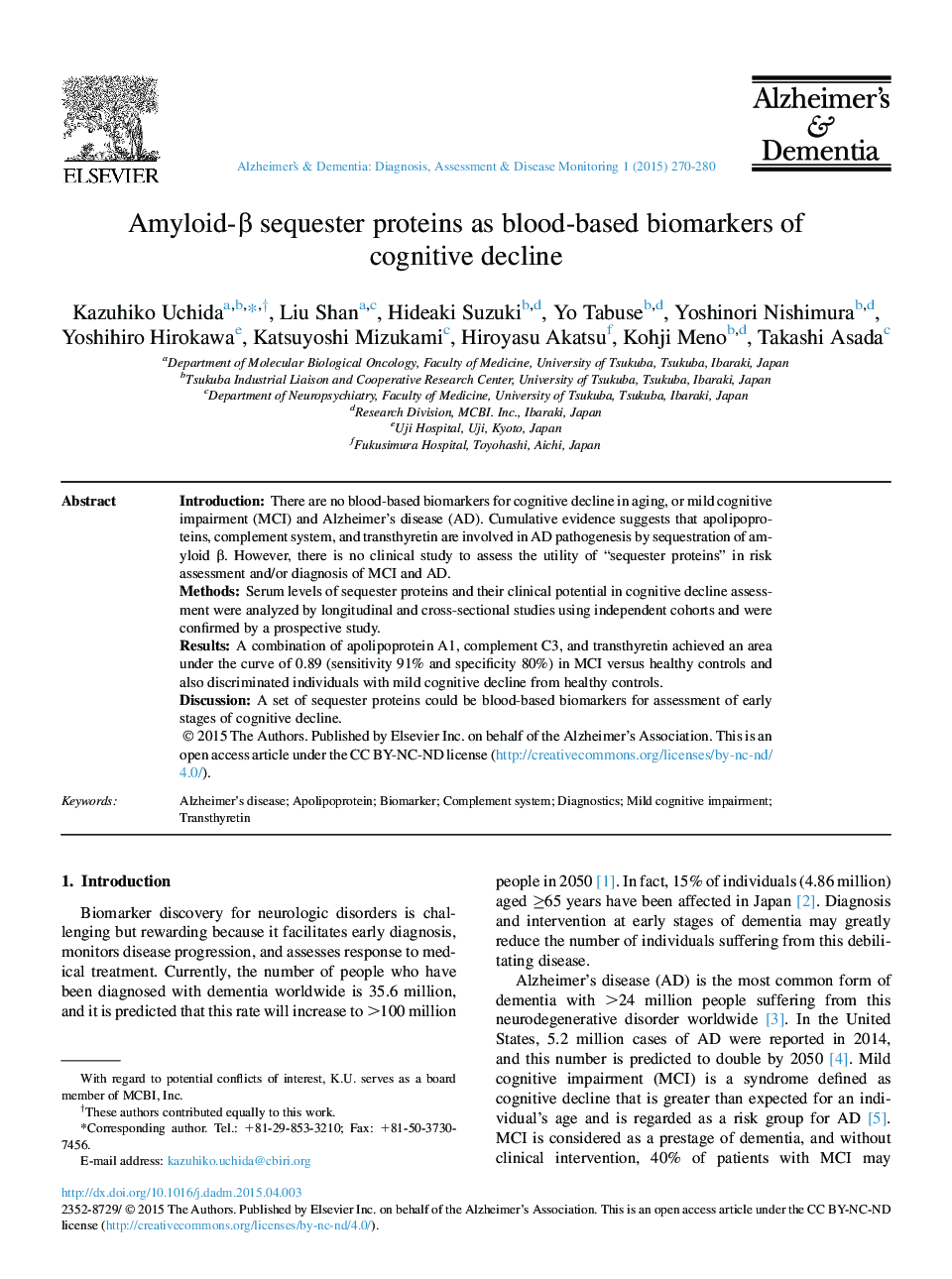| Article ID | Journal | Published Year | Pages | File Type |
|---|---|---|---|---|
| 3032038 | Alzheimer's & Dementia: Diagnosis, Assessment & Disease Monitoring | 2015 | 11 Pages |
IntroductionThere are no blood-based biomarkers for cognitive decline in aging, or mild cognitive impairment (MCI) and Alzheimer's disease (AD). Cumulative evidence suggests that apolipoproteins, complement system, and transthyretin are involved in AD pathogenesis by sequestration of amyloid β. However, there is no clinical study to assess the utility of “sequester proteins” in risk assessment and/or diagnosis of MCI and AD.MethodsSerum levels of sequester proteins and their clinical potential in cognitive decline assessment were analyzed by longitudinal and cross-sectional studies using independent cohorts and were confirmed by a prospective study.ResultsA combination of apolipoprotein A1, complement C3, and transthyretin achieved an area under the curve of 0.89 (sensitivity 91% and specificity 80%) in MCI versus healthy controls and also discriminated individuals with mild cognitive decline from healthy controls.DiscussionA set of sequester proteins could be blood-based biomarkers for assessment of early stages of cognitive decline.
